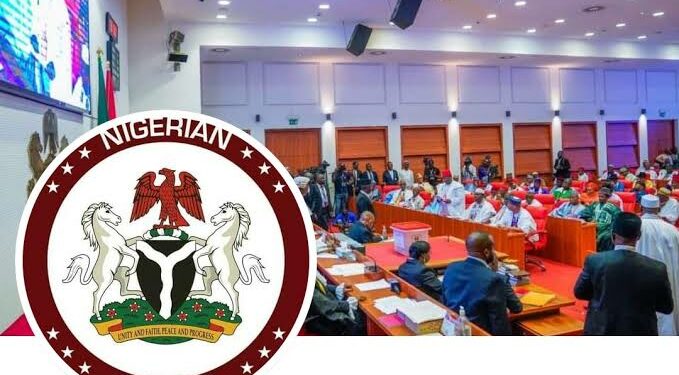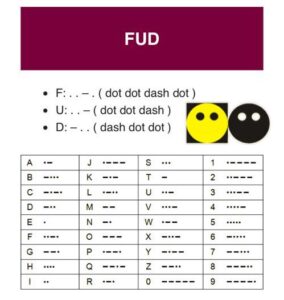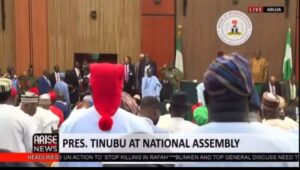
Amidst anger from Nigerians, particularly the Organised Private Sector, regarding the 0.5% cybersecurity levy on electronic transactions, the Senate has defended the proposed implementation by the Central Bank of Nigeria (CBN).
By virtue of provisions of the Cybercrime (Prohibition, Prevention, etc) (Amendment) Act 2024, and under the provision of Section 44 (2)(a) of the Act, a levy of 0.5 per cent (0.005) equivalent to half a per cent of all electronic transaction values by the businesses specified in the Second Schedule of the Act is to be remitted to the National Cybersecurity Fund, which the Office of the National Security Adviser shall administer.
Chairman of the Senate Committee on National Security and Intelligence, Senator Shehu Umar Buba, stated in a statement that “the levy is not punitive as it has numerous exemptions to protect and relieve ordinary citizens, particularly the poor.”
According to him, the exemptions include salary payments, intra-account transfers, loan disbursements and repayments, and other financial transactions.
Checks revealed that the House of Representatives, on Thursday, directed the apex bank to halt the proposed levy. The Green Chamber directed the CBN to withdraw the ambiguous circular in existence and issue an unequivocal circular in line with the letters and spirit of the Cybercrimes (Amendment) Act, 2024. It equally mandated its Committees on Banking Regulations, and Banking and other Ancillary Institutions to guide the CBN properly.
The House of Representatives’ resolution was sequel to the adoption of a motion of urgent public importance moved by the House Minority Leader, Hon. Kingsley Chinda (PDP Rivers) and 359 others.
But justifying the controversial levy, the Senate said the amendment to the Cybercrimes Act, which birthed the Levy, underwent a transparent public hearing process, receiving contributions from various stakeholders. “Both Houses of the National Assembly unanimously passed it before President Bola Ahmed Tinubu signed it into law,” the Red Chamber argued.
Senator Buba emphasized that the provisions for the cybersecurity levy have been in place since 2015 but were delayed due to unclear interpretations and applications.
“The Cybercrimes Act of 2015 has provisions for imposing a cybersecurity levy since its enactment, but the vagueness of Section 44 led to different interpretations until the 2024 amendments. The levy is 0.5%, equivalent to half a per cent of the value of all electronic transactions by businesses specified in the Second Schedule to the Act.
“The amendments addressed crucial gaps in the Act and empowered the nation to implement the National Cybersecurity Programme effectively. They also seek to realign and empower the country to combat the inadequate funding and disruptive effects of cyber threats on national security and critical economic infrastructures,” he said.
He underscored the criticality of the cybersecurity levy’s implementation, stating that its prudent utilization will bolster the nation’s capacity to evaluate, execute, upgrade, and fortify the security of national critical economic infrastructure, thereby safeguarding the nation’s cyberspace.
The Senate Committee on National Security and Intelligence commended the Office of the National Security Adviser and the Central Bank of Nigeria (CBN) for initiating the operationalizing the cybersecurity levy, highlighting its benefits far outweigh its drawbacks.
Senator Buba appealed for public support, assuring that the policy will yield maximum benefits for citizens in the shortest possible time.
Investigation revealed that the CBN circular announcing the Levy, which instigated public disaffection, exempted some transactions from the cybercrime levy.
The exemptions included loan disbursements and repayments, salary payments, intra-account transfers within the same bank or between different banks for the same customer, intra-bank transfers between customers of the same bank, and Other Financial Institutions (OFIs) instructions to their correspondent banks.
The exemption also applies to interbank placements, banks’ transfers to CBN and vice versa, inter-branch transfers within a bank, cheque clearing and settlements, and Letters of Credit (LCs).
Others include banks’ recapitalization-related funding only bulk funds movement from collection accounts; savings and deposits including transactions involving long-term investments such as treasury bills, bonds; and commercial papers; government social welfare programs transactions, e.g., pension payments; non-profit and charitable transactions including donations to registered non-profit organizations or charities; educational institutions transactions, including tuition payments and other transactions involving schools, universities, or other academic institutions.






